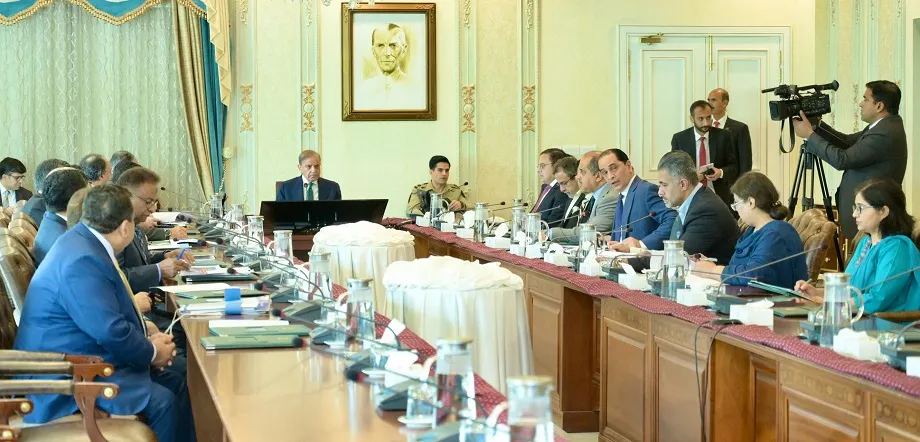Islamabad, April 10: Prime Minister Muhammad Shahbaz Sharif chaired a review meeting on the Export Facilitation Scheme (EFS), during which interim recommendations were presented by the committee.
The committee was tasked with enhancing the effectiveness of the scheme and ensuring that the export sector benefits fully from it.
Increasing national income through exports remains one of the government’s top priorities.
The Prime Minister emphasized the importance of further consultation with experts in the sector to refine the committee’s recommendations.
This will help make the EFS more effective in facilitating the import of raw materials and machinery necessary for export industries.
He directed that the committee finalize the interim recommendations after thorough consultations and submit a report at the earliest.
The Prime Minister also called for the inclusion of input from industries and business organizations in the preparation of the next national budget, ensuring that their suggestions are taken into account.
Additionally, the Prime Minister stressed the need to provide a level playing field for local industries.
The EFS was initially launched to reduce production costs and make the country’s exports more competitive in the global market.
Read More: Pakistan’s Goods Exports Increased by 7.7% to $24.7 Billion in Nine Months
The meeting was attended by key figures, including Federal Ministers Ahsan Iqbal, Ahad Khan Cheema, Muhammad Aurangzeb, Ali Pervez Malik, Sardar Owais Khan Leghari, Advisor to the Prime Minister Syed Tauqeer Shah, Coordinator to the Prime Minister Rana Ehsan Afzal, Chairman of the Federal Board of Revenue (FBR) Rashid Mahmood Langrial, as well as prominent representatives from the export industry.
The Federal Board of Revenue (FBR) is preparing to introduce significant amendments to the Export Facilitation Scheme (EFS) in order to curb revenue losses and tighten controls on duty-free imports.
Revision of EFS by FBR
A key revision involves removing the EFS facility for importers of iron and steel scrap.
These changes, recently approved by the Economic Coordination Committee (ECC) of the Cabinet, are designed to improve regulatory oversight while minimizing any negative impact on compliant exporters.
Also Read: Exports of Services Up at $5.46bn by 6%
Among the proposed amendments are a reduction in the input utilization period, aligning input authorization with production capacity and input-output ratios, replacing insurance guarantees with bank guarantees, and enhancing controls on vendor facilitation.
The new policy will also introduce a sampling mechanism to verify the use of imported raw materials in export goods, ensuring that materials are used in accordance with their declared purpose.
The FBR is expected to issue a statutory regulatory order (SRO) once the Cabinet formally approves the amendments in its upcoming meeting.









